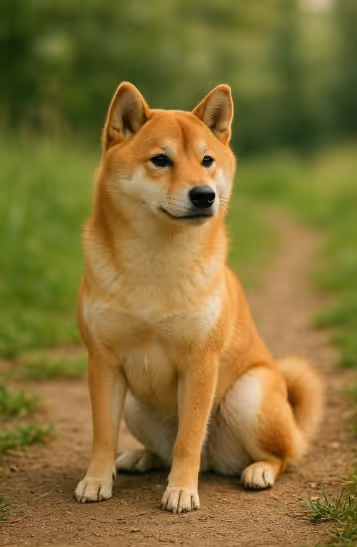The Shiba Inu is Japan’s most popular companion dog and one of the oldest native breeds. With a fox-like face, plush double coat, and cat-like independence, the Shiba is as dignified as it is charming. Originally bred for hunting in the mountainous regions of Japan, the Shiba thrives in environments where it can express both its energy and independence. They're best suited for experienced dog owners who can meet their high exercise and mental stimulation needs.

The Shiba Inu dates back to ancient Japan—used as a small-game hunter in dense mountain terrain. The name “Shiba” translates loosely to “brushwood,” referencing either the terrain or the breed’s reddish coat color.
During World War II, the breed nearly became extinct due to bombing raids and disease outbreaks. Dedicated post-war breeding programs preserved the bloodline, with the current Shiba Inu descending from just three bloodlines: Shinshu, Mino, and San'in.
The Shiba was officially recognized by the Japanese Kennel Club in the mid-20th century and introduced to North America in the 1950s. It is now the most popular companion dog in Japan and continues to gain global attention.
Unique to the Shiba is the "Shiba scream"—a high-pitched vocalization often used to express displeasure or excitement.
The Shiba Inu’s grooming routine is relatively simple but must be consistent due to seasonal shedding (blowing coat twice a year).
Shibas are energetic, agile, and intelligent. Without proper physical and mental stimulation, they can become destructive.
⚠️ Note: Always keep Shibas leashed or within a secure fenced area—they have strong prey drive and will run if unleashed.
Shibas are intelligent but notoriously stubborn and independent.
🧩 Tip: Incorporate scent tracking and food puzzles to stimulate problem-solving instincts
🥇 Recommended Brands: Acana, Orijen, Wellness CORE
Shiba Inus are available through breed-specific rescues or reputable breeders.
Things to ask breeders:
Resources:
Are Shiba Inus good family dogs?
Shibas can be loyal and affectionate with family but are best suited for homes with older children and experienced dog owners.
Do Shibas bark a lot?
They are relatively quiet but can be vocal when excited or annoyed—famous for the "Shiba scream."
How much grooming do they need?
Moderate. Weekly brushing is enough outside shedding season, but daily brushing is required during coat blow-outs.
Can Shibas be off-leash?
Not reliably. Their prey drive and independence make them poor candidates for off-leash environments.
Do Shiba Inus get along with other dogs?
They can, but same-sex aggression is common. Early socialization helps.